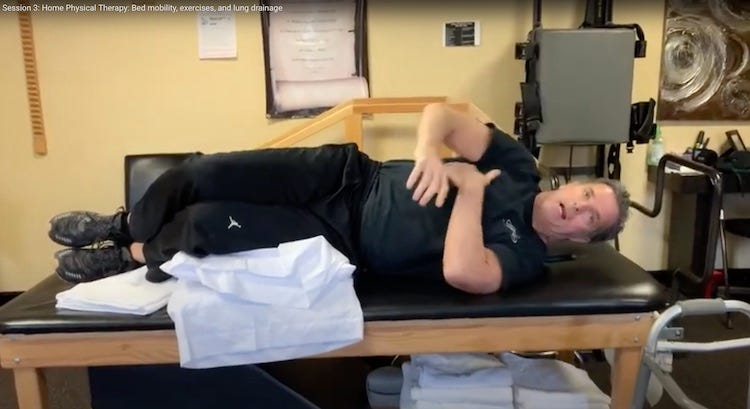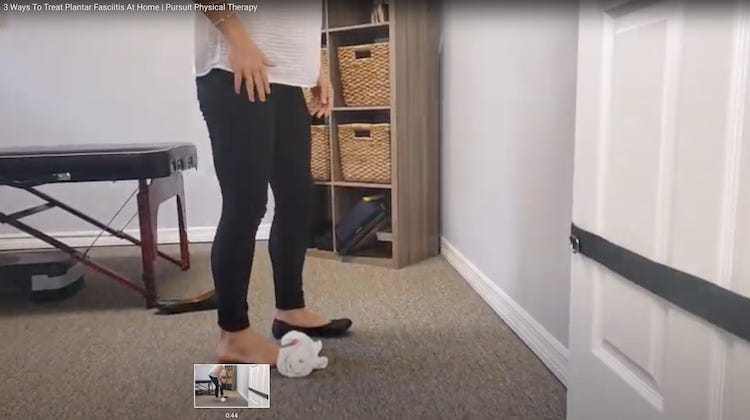Is COVID showing us the future for physiotherapy?
There are two ways you can read the latest promotional campaign from the Canadian Physiotherapy Association, that states that physiotherapists’ work takes them ‘from treating patients to moving people’. The first is that physiotherapy spans hospital and home. The other is that the very nature of physiotherapy is changing.
COVID-19 is undoubtedgly reshaping the contours of physiotherapy like other cataclysmic events before. But there are some important differences that we should be aware of.
World War I and the polio epidemics that ran until the 1960s produced enormous numbers of casualties needing physical rehabilitation, but there had been wars and epidemics before. What was different in the 20th century was the organisation of social welfare. This provided the infrastructure to support the training and deployment thousands of new physiotherapists.

The last 50 years have seen the slow dismantling of this infrastructure though, and it is unlikely that nation-states will once again invest in the hegemonic power of biomedicine in the way that it did before.
Notwithstanding the recent outpouring of support for healthcare workers, governments throughout the world have long been trying to make stringent cuts to public services, and the effects of COVID on the supply of money will only accelerate that.
Given this, perhaps the actions of some therapists to take their work online over the last few weeks points to a new market for our services? But if people like Daniel and Richard Susskind are right, these ‘innovations’ might actually be pointing to exactly what physiotherapy will not be in the future.
In their book The Future of the Professions (Susskind & Susskind, 2015), the father and son authors argue that we have learnt from successive technological and work disruptions, that anything you can practice as a discrete skill, or describe and teach in a language that others can understand, will be lost to those who are cheaper to train and employ than we are.

Decades of work decomposition in manufacturing, tourism, journalism, banking, law, and elsewhere, has shown us that any task that can be standardised, repeated, programmed, regimented, or described in any kind of formulaic way, will, in time, be lost.
And this poses a grave threat to us.
Physiotherapy curricula are bloated with technical skills training, and we have, for years, emphasised skills over subjectivity, cure over complexity.
And we are seeing this being played out by therapists desperate to offer some kind of service during this long period of social isolation.
But paradoxically, the kinds of practice that are now being promoted by physiotherapists to people on social media may well be the definitive catalogue of exactlythose things that will be lost tomorrow. And perhaps rightly so.
Physiotherapists never owned basic fitness and strengthening programmes, tests for flexibility, treatments for minor injuries, or home-based rehabilitation programmes anyway.
But the fact that they can be so easily offered and made available, suggests that they will notbe what defines physiotherapy in the future.
But hands-on therapies and treatments requiring close proximity are likely to suffer too in the near future.

So what will be left?
It is becoming increasingly clear that the things that will define the profession in the future will be the things that cannot be so easily given away, described or disseminated - the kinds of things that require a lengthy training, contemplation, complex problem-solving, and an understanding of people in the broadest possible context.
We should already be thinking about the impact of this in our curricula, because the healthcare system will look dramatically different in 10 years, when todays graduates are our senior practitioners.
WWI and the polio epidemics forced physiotherapy to grow rapidly and consolidated the profession around a set of skills and abilities that still form the core of the profession’s principles. But today we have the Internet, neoliberal economics, and climate change, so it is inconceivable that the profession will not be radically altered when this catastrophic pandemic finally abates.
Perhaps we are already seeing the shape of the profession to come.
Reference
Susskind, R., & Susskind, D. (2015). The future of the professions. Oxford, UK: Oxford University Press.



